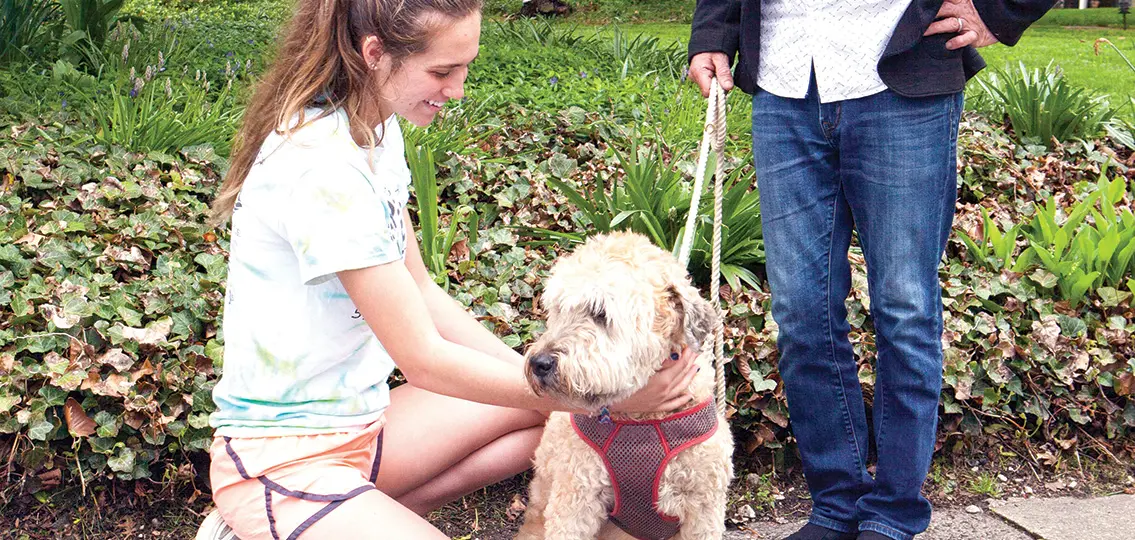Laurie Santos, psychology professor at Yale University and host of the Happiness Lab podcast, explains what makes us happy and small things we can do that will improve our well-being. Here are some of the highlights from our interview with her:
As parents, our state of mind can be “contagious.” If we have a sense of well-being, we can set the tone for the rest of our family and begin a positive spiral.
Research has identified specific behaviors that do, in fact, boost our sense of well-being. Some of them may be challenging, but even baby steps will make a difference. We need to also keep in mind that as we make efforts to increase our happiness, we need to make sure that we have self-compassion. Beating ourselves up for not doing something won’t help.
Behaviors that Lead to a Sense of Well-Being:
1. Healthy habits
Getting regular exercise and a good night’s sleep are key. It’s been found that a half hour of exercise a day will have a significant impact on mood. But again, even if it’s one jumping jack, anything is better than nothing.
As for sleep, it’s been particularly difficult for many parents to sleep well during this time. Again, there are strategies that are rooted in science that will help us sleep better.
- Prioritize sleep hygiene —making sure your room is dark and the phone is not near you.
- Regulate emotions before bed by taking slow, deep breaths. Often, our body knows that we have stressors that are activating our “fight” mechanism. Deep breaths trick your brain into thinking that the fear is gone.
2. Social connections
Often, we’ll plop down to watch Netflix or scroll on our phone. Those things are easy to do, but they don’t necessarily make us feel better. We need to identify “nutritious” activities. Gather on Zoom to socialize or do yoga. Make an old-fashioned phone calls to catch up with someone.
3. Focus on others
Research has shown that the act of doing something nice for someone else gives a person a happiness boost, regardless of the motive. Whether you donate to charity or give blood, you notice that it feels good to give of yourself so the key is to beuild in these types of activities, which are also “nutritious.”
Getting Teens to Buy In
1. Plant the seeds
If we embody these behaviors, they will trickle down to our teens. They watch what we do and emulate it, the good and the bad.
2. Incorporate structure
We are creatures of habit. Therefore, having a schedule to rely on reduces the stress we feel when we are uncertain. For teenagers who have lost their independence and agency, it’s important to give them a voice in what the schedule looks like by letting them choose, allowing for flexibility within the schedule, or even having them determine the routine).






